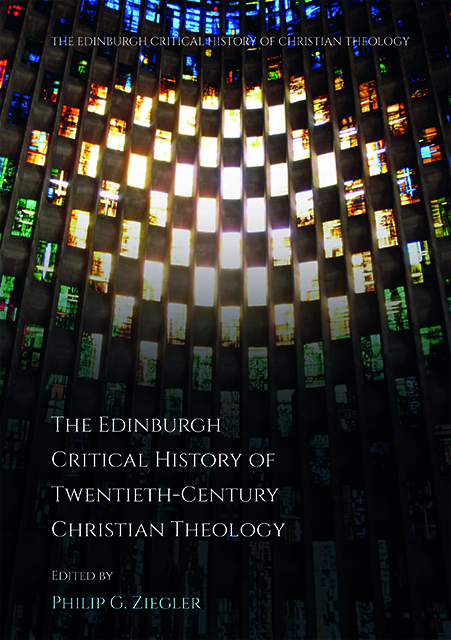Book contents
- Frontmatter
- List of Contents
- Notes on Contributors
- Editor's Introduction
- 1 Modern Theology in a Scientific, Historical Age
- 2 Tradition and Innovation
- 3 Scripture and Criticism
- 4 Reason, Method, System
- 5 Catholicism and Ecumenism
- 6 Fundamentalism and Evangelicalism
- 7 Synagogue, Sho’ah and State
- 8 Religion(s)
- 9 God
- 10 Spirit
- 11 Christ
- 12 Liberation and Freedom
- 13 The Secular – The Political: Augustine and Political Augustinianism in Twentieth-Century Political Theology
- 14 Globalisation after Empires: World Christianity and the Theological De-centring of Europe
- 15 War and Peace
- 16 Race and Black Theology
- 17 Sex and Gender
- 18 Hope
- Index
15 - War and Peace
Published online by Cambridge University Press: 14 July 2023
- Frontmatter
- List of Contents
- Notes on Contributors
- Editor's Introduction
- 1 Modern Theology in a Scientific, Historical Age
- 2 Tradition and Innovation
- 3 Scripture and Criticism
- 4 Reason, Method, System
- 5 Catholicism and Ecumenism
- 6 Fundamentalism and Evangelicalism
- 7 Synagogue, Sho’ah and State
- 8 Religion(s)
- 9 God
- 10 Spirit
- 11 Christ
- 12 Liberation and Freedom
- 13 The Secular – The Political: Augustine and Political Augustinianism in Twentieth-Century Political Theology
- 14 Globalisation after Empires: World Christianity and the Theological De-centring of Europe
- 15 War and Peace
- 16 Race and Black Theology
- 17 Sex and Gender
- 18 Hope
- Index
Summary
Introduction
War and peace play a significant role in Christian theological tradition – far more significant than is recognised when the subject of ‘war and peace’ is consigned to a chapter of theological ethics. On the one hand, Christian theology is compelled to reckon with violence – if nothing else, because of its central commitment to the God revealed in a convicted criminal tortured and executed by an occupying army. On the other hand, Christian theology is also required to speak of and articulate the promise of peace that is integral to the scriptural and traditional language of God's blessing. Twentieth-century theology's distinctive engagements with questions of war and peace owe some of their distinctiveness to the particular character of the twentieth century's wars – and efforts towards peace; but they also reflect, as we shall see, wider debates in theology.
Christian Scripture and Christian theological tradition are permeated by the language and imagery of violence, and more specifically of warfare; and Christian history is and remains full of wars fought by Christians, with more or less explicit claims of divine sanction or blessing. It is important to note from the outset that the relationship between these two phenomena – the language and imagery of war and violence, and wars fought in real life – is far from straightforward. Indeed, an important strand in twentieth-century Christian theology, in the aftermath of the enormously destructive European wars and of the recognition of the violence of Christian nations’ imperialism, has involved rereadings of the scriptural and traditional ‘war’ texts to develop theological critiques of militarism.
We should note at this point that framing a discussion in terms of ‘war and peace’ already represents a consequential decision – albeit a rather predictable one – about what forms of violence are of most concern for theology. There is a very long and well-known tradition of debate in Christian theology (and law and ethics) about the circumstances in which warfare is justified or indeed required. By contrast, there is little or no discussion, before the second half of the twentieth century, of violence within the family unit, or of male violence against women, as a significant issue for theology – despite the fact that, just as with warfare, both the language and symbolism and the practice are unquestionably present in Christian history.
- Type
- Chapter
- Information
- Publisher: Edinburgh University PressPrint publication year: 2022



